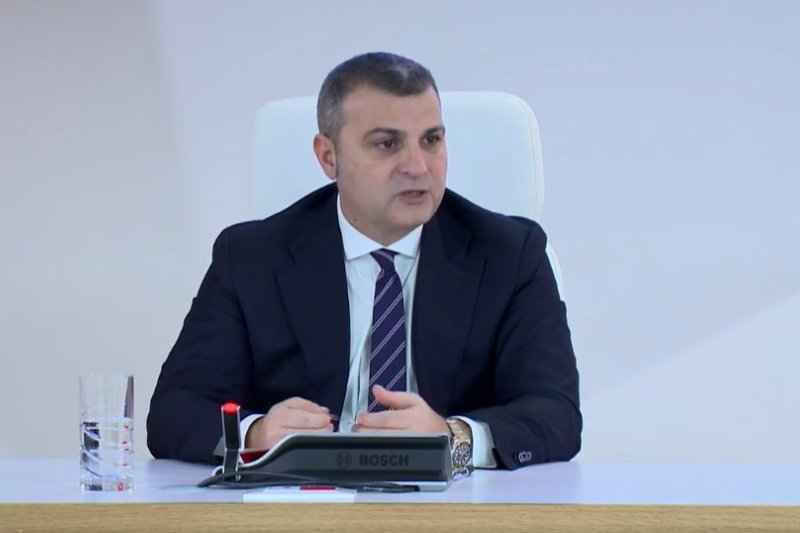C-Bank’s Key Rate Unchanged at 2.75%
The Bank of Albania's Supervisory Council decided on Wednesday to keep the key interest rate unchanged at 2.75%.
In his speech after the meeting, Governor Gent Sejko said that the volume of economic activity, employment, and wages have continued to grow over the last two quarters, inflation continues to remain at low levels and close to the target, financial markets have been calm, and lending to the private sector has increased.
According to him, from the perspective of the consumer basket, the stability of inflation was determined by the equivalent movements in the downward direction of food inflation and the upward direction of oil and durable consumer goods inflation.
“Low levels of imported inflation reflect the progressive decline in inflation in our trading partners and the strengthening of the exchange rate over the past year. On the other hand, the stability of domestic inflation, at levels consistent with our inflation objective, reflects both solid demand for goods and services, as well as the continued increase in wages and labor costs. Finally, the increase in the supply of agricultural products continues to keep food inflation close to the minimum levels of the last two years,” said Sejko.
According to him, indirect data for 2025 suggest that the Albanian economy has continued to grow at positive rates, although somewhat slower than those of 2024.
The economic growth profile during the first quarter of 2025 appears to have remained similar to that of last year.
"Economic growth has continued to reflect the expansion of household consumption, business investment, and tourism revenues. The increase in private sector consumption and investment reflects the sound balance sheets of businesses and households, their confidence in the future, and the favorable financial conditions in the country," Sejko noted.
On the other hand, despite some positive signals, the balance of trade in goods is expected to have a negative contribution, while fiscal policy continues to maintain consolidation.
This demand profile continues to fuel mainly the expansion of the services and construction sectors, while the industrial and agricultural sectors have a slower performance,” said the Governor.
According to him, the relatively high demand for goods and services continues to keep the economy in a positive phase of the business cycle.
This performance is reflected in a labor market characterized by growing employment, an unemployment rate close to historical minimum levels, and rapid wage growth in the private sector. In particular, the latter increased by 9.5% in the fourth quarter of last year, illustrating the continuation of the imbalances of demand and supply in the labor market.
“As we have emphasized before, the rapid growth of wages increases the incomes of Albanian families, but it is also a premise for the increase in production costs and consumer prices,” Sejko noted.
He emphasized that the financial markets have continued to appear calm during the first months of 2025. The money market is characterized by a good liquidity situation, reduced risk premiums, and accommodative financial conditions.
“In parallel, the foreign exchange market has shown greater stability compared to the past two years, although seasonal pressures continue to be present. This performance suggests a better balance of demand and supply for foreign exchange in the domestic market,” the governor noted.
The Bank of Albania assesses that the update of the forecasts suggests that the outlook for economic developments remains positive.













